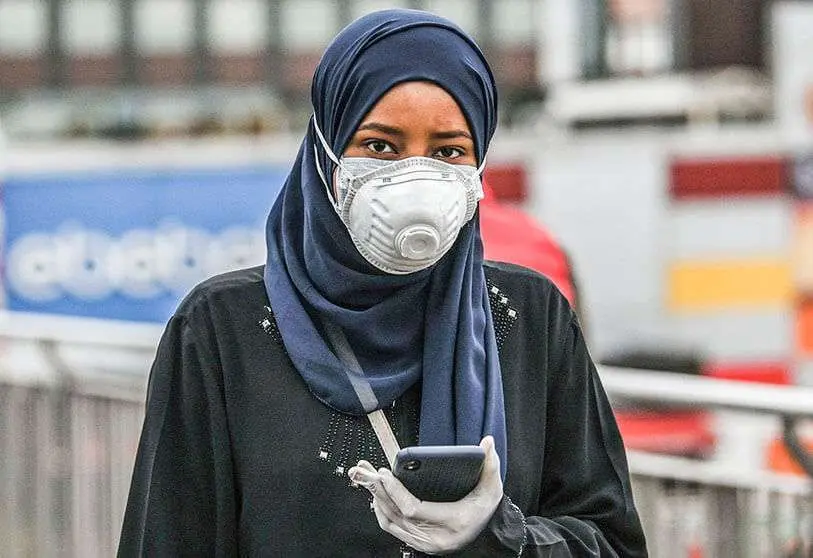Turkish doctors accuse the government of concealing data on COVID-19

The Turkish Doctors’ Association (TTB) accused the executive of lack of transparency and falsification of data on the statistics relating to COVID-19 as it was not carrying out sufficient tests to detect the pathogen; it also reported that some hospitals were reaching their maximum capacity and sending patients home because of the spread of the coronavirus.
"The Ministry of Health has restricted the tests for those who have had contact with the infected. If the number of tests drops, the number of new patients drops. With zero tests, you have zero patients," TTB President Sinan Adiyaman told the Sozcu newspaper.
The president of the TTB, the largest organization of doctors in the Eurasian nation, said that the Turkish state led by Recep Tayyip Erdogan is thus hiding data from the public. Official figures indicate less than 1,000 new infections every day in Turkey, a country of some 80 million people. Since the outbreak of the pandemic, Turkey has counted more than 231,000 diagnosed cases and more than 5,700 deaths. According to Adiyaman, 10% of those hospitalized are in intensive care, a figure far higher than the 1% average that is normal, he says, in the rest of the world.
The Turkish Government stopped specifying the number of those hospitalized in intensive care a week ago, and has been referring to serious patients ever since. "In some cities patients are sent home because there are no beds available. We send them home, but we don't know if they stay there or go out," Adiyaman warned.
For its part, the Birgün newspaper reported that the governorate of Malatya province in the centre of the country has recorded up to 100 new cases a day over the past four days, although the health ministry has reported only 45 such cases a day. For almost two weeks, new cases reported in Turkey have been between 900 and 1,000 per day.
Yilmaz Kurt, a member of the emergency team at a private hospital in Ankara, told Efe that he is seeing an increase in positive cases from COVID-19 and has been told by colleagues at other centres that they are now at full capacity. "We can expect a new wave after the Eid al-Adha holiday because hundreds of thousands of people are travelling around the country to visit their families," the doctor said.
Meanwhile, concerned about a possible increase in COVID-19 infections, Turkish medical officials urged greater vigilance in light of the Eid al-Adha holiday, during which millions of people travel throughout the country.
Eid is traditionally celebrated with prayers in mosques, family gatherings and animal sacrifices, as well as visits to the elderly and cemeteries. But the authorities and health experts have urged citizens to follow the prescribed rules of hygiene and protection.
Recep Tayyip Erdogan himself urged his fellow citizens to strictly follow the rules of social distancing, wear masks and obey hygiene measures, amid concerns that social interactions during the holidays could cause a large upsurge in the number of cases of COVID-19.
"The outbreak continues, the virus kills and leaves really nasty side effects on the body, so everyone should be very careful during the holidays," Dr. Hamit Ekinci, an emergency expert in the southeastern city of Diyarbakir, told the Chinese Xinhua news agency.
The doctor, who works in a private clinic, stressed that in his city, the largest in southeast Turkey with a population of about 1.8 million, new cases have increased to alarming levels in recent weeks. The frustrating situation also applies to neighboring provinces, he said. "In Diyarbakir alone we have about 300 new cases per day, which is quite high, and with this holiday, which generates greater mobility among citizens, we are really concerned," the medical professional said. Ekinci noted that cultural and socio-economic reasons were key to causing new clusters of infection in his city, which is also home to hundreds of thousands of Syrian refugees who fled the war in Syria. "Families of 10 to 20 members living under the same roof make transmission very easy, and quarantining infected patients also becomes very difficult as there is usually not enough space to accommodate them," he added.
Health Minister Fahrettin Koca told the media that no travel restrictions were imposed during the holiday that began on Friday in Turkey, but called on everyone to take precautions.
Turkey lifted most of the coronavirus restrictions imposed in mid-March on June 1, allowing companies and various businesses to reopen to boost the battered economy. In response, Hamit Ekinci explained that the normalization process happened too quickly and too soon.







